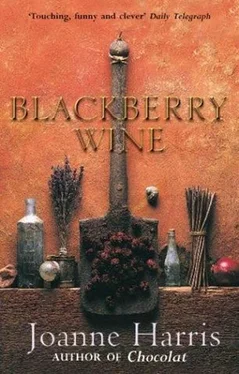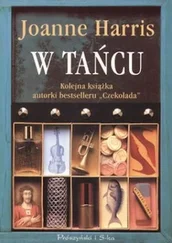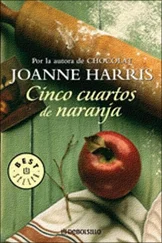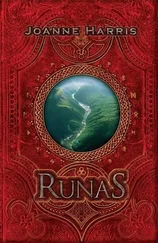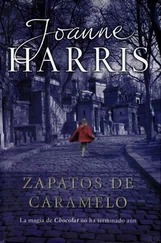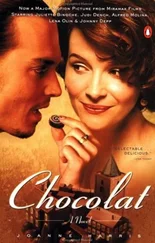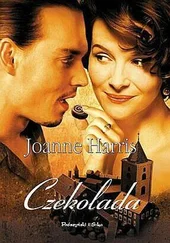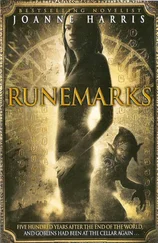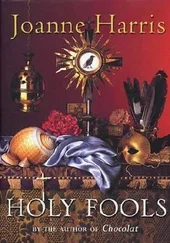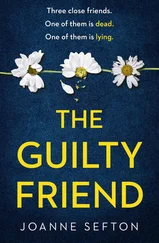She turned then, a red onion in one hand, the knife in the other.
He persisted: ‘I promise I’m not here to develop anything. For Christ’s sake, I’m sitting in your kitchen soaked to the skin and covered in baking soda. Do I look like an entrepreneur?’
She considered this for a moment. ‘Perhaps not,’ she said at last.
‘I bought the place on impulse. I didn’t even know you were… I didn’t think you… I don’t usually have impulses,’ he finished lamely.
‘I find that hard to believe,’ said Marise, smiling. ‘For a man who deliberately puts his hand into a wasps’ nest, I find it very hard.’
It was a small smile, maybe two on a scale of one to ten, but it was there anyway.
They talked after that. Jay told her about London and Kerry and Jackapple Joe . He talked about the rose garden and the vegetable patch beside the house. Of course he didn’t mention Joe’s mysterious presence and subsequent disappearance, or the six bottles, or the way she herself had infiltrated his new book. He didn’t want her to think he was crazy.
She made lunch – pasta with beans – and invited him to join them. Then they drank coffee and Armagnac. She let him change his wet clothes for a pair of Tony’s overalls while Rosa played outside with Clopette. Jay found it strange that she did not refer to Tony as her husband, but as ‘Rosa’s father’, but the rapport between them was too new, too tenuous, for him to endanger it by asking questions. When – if – she wanted to discuss Tony, she would do it in her own time.
So far, she was giving little away. A fierce independence, tenderness for her daughter, pride in her work, in the house, the land. A way of smiling, grave-seeming, but with a kernel of sweetness. A way of listening in silence, an economy of movement which belied the quick mind, the occasional wry twist of humour beneath the practicality. Thinking back to his first glimpse of her, to his previous assumptions, to the way he had listened to, and half believed, the opinions of people like Caro Clairmont and Mireille Faizande he felt a rush of shame. The heroine of his novel – unpredictable, dangerous, possibly mad – bore no relation to this quiet, calm woman. He had let his imagination run far ahead of the truth. He drank his coffee, abashed, and resolved to pry no further into her affairs. Her life and his fiction had nothing in common.
It was only later, much later, that the unease resurfaced. Oh, Marise was charming. Clever, too, in the way she had led him to talk about himself whilst evading all mention of her own background. By the end of the afternoon she knew everything about him. But even so there was something more. Something about Rosa. He considered Rosa. Mireille was convinced she was being ill-treated, but there were no signs of that. On the contrary, the love between mother and daughter was clear. Jay remembered the time he had seen them together by the hedge. That unspoken rapport. Unspoken . That was it. But Rosa could talk, spontaneously and with ease. The way she had shouted at the goat in the kitchen proved it, that quick, excited outburst. Clopette, non ! Pas dans la cuisine ! As if she talked to the goat habitually. And the way Marise looked at her, as if warning her to be quiet.
Why should she warn her? He went over the question again and again. Was it something Marise didn’t want him to hear? And the child – hadn’t she been sitting with her back to the door when the goat made its entrance?
So how could she have known it was there?
Nether Edge, Summer 1977
AFTER HE LEFT GILLY, JAY SAT BY THE BRIDGE FOR A WHILE, feeling angry and guilty and certain she would come after him. When she didn’t appear, he lay in the wet grass for a while, relishing the bitter smells of earth and weeds, and looked into the sky until the falling drizzle made him dizzy. He began to feel cold, so he got up and began to make his way back to Pog Hill along the disused railbed, stopping every now and then to examine something by the side of the tracks, more out of habit than real interest. He was so lost in his brooding that he completely failed to hear, or see, the four figures which emerged silently from the trees at his back and fanned out behind him in pursuit.
By the time he saw them it was too late. Glenda was there, and two of her mates: the skinny blonde – he thought her name was Karen – and a younger girl, Paula – or was it Patty? – ten or eleven, maybe, with pierced ears and a mean, sulky mouth. They were already moving across his path to cut him off, Glenda to one side, Karen and Paula to the other. Their faces shone with rain and eagerness. Glenda’s eyes met his across the track and they were gleaming. For a moment she looked almost pretty.
Worse still, Zeth was with her.
For a second or two Jay froze. The girls were nothing special. He had outrun, outtalked and outbluffed them before, and there were only three of them. They were familiar, part of the Edge, like the open-cast mine or the scree above the canal lock; a natural hazard, like the wasps – something to be treated with caution but not fear.
Zeth was another matter.
He was wearing a Status Quo T-shirt with the sleeves rolled up. A pack of Winstons was tucked in one sleeve. His hair was long, flapping around his thin, clever face. His acne had cleared up, but there were deep marks on his cheeks where it had been – initiation scars, channels for crocodile tears. He was grinning.
‘Astha been pickin on my sister?’
Jay was already running before he finished his sentence. It was the worst possible place to be cornered; high above the canal and its many hiding places, the straight, open railbed lay in front of him like a desert. The bushes on either side were too thick to squeeze through, too small to offer protection. A deep ditch and a screen of bushes hid him from even the closest houses. His sneakers skidded dangerously on the gravel. Glenda and her mates were in front of him, Zeth was a heartbeat behind. Jay took the best option, dodging the two girls and making straight for Glenda. She stepped out to intercept him, her meaty arms held out as if fielding a wide ball, but he pushed her with all his strength, shouldering her aside like an American footballer, and hurtled free down the abandoned tracks. Behind him he heard Glenda wail. Zeth’s voice pursued him, ominously close: ‘Tha little bastard!’
Jay didn’t look round. There was a railway bridge and a cutting about a quarter of a mile from Pog Hill, with a path leading up onto the street. There would be other paths, too, leading to the cutaway and waste ground beyond. If he could only get there… The bridge wasn’t far. He was younger than Zeth, and lighter. He could outrun him. If he could reach the bridge there would be places to hide.
He glanced over his shoulder. The gap between them had widened. Thirty or forty yards separated them. Glenda was back on her feet and running, but in spite of her size Jay wasn’t worried about her. She looked out of breath already, her overlarge breasts bobbing ludicrously under her straining shirt. Zeth was jogging quite slowly next to her, but as Jay looked round he put on a sudden, terrifying burst of speed, his arms pumping, gravel spraying up fiercely around his ankles.
Jay was beginning to feel dizzy now, his breath a hot stone. He could see the bridge just around the curve of the line, and the row of poplars which marked the abandoned points. Five hundred yards would do it.
Joe’s talisman was still in his pocket. He could feel it against his hip as he ran, and he felt dim relief that he’d brought it along. He could just as easily have forgotten it. He had been too busy that summer, too snarled up in himself to think very much about magic.
Читать дальше
